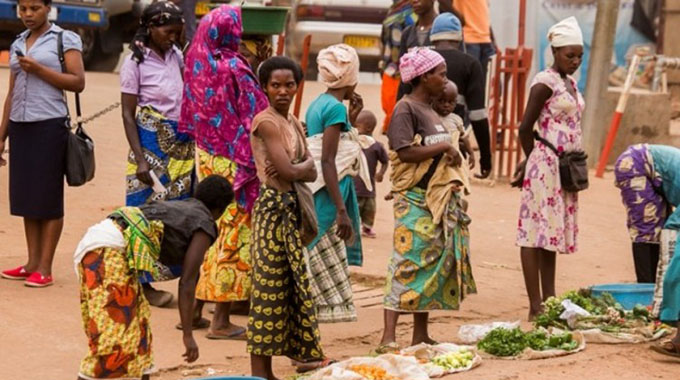Mothers: Giving it all during pandemic

Faith Katete
Lifestyle Writer
Tomorrow is Mothers’ Day.
While Covid-19 has impacted people across the world, changing the way people live, work and access healthcare, gender-based disparities that existed prior to the pandemic have been magnified.
Many women have been on the frontline of the Covid-19 emergency as essential workers, mothers, caregivers.
Lack of paid leave, family, care-giving responsibilities, traditional gender roles and health concerns have been many of the burdens of the pandemic squarely on the shoulders of women, falling particularly hard on women and those who are low income.
Family care-giving responsibilities before and after the pandemic have largely fallen on women. More than one in 10 women report that they were caring for a family member who needed special assistant prior to the pandemic.
Sandra Makaure an entrepreneur said “As a mother, l has five children it was hard because l’m an entrepreneur. My business is solely dependent on me and l could neither order things nor go outside the country,” she said.
Over half the mothers with school-going children said the stress and worry over the pandemic had affected them.
Low-income mothers were more likely than higher women to report quitting a job for a reason related to Covid 19 because their child’s school or daycare was closed, leaving the most disadvantaged with a loss of income.
Said Memory Ndoro: “I got up at 4am and prepared my three children for the day, got them dressed, connected their laptops, printed out their paperwork. I got breakfast for them and as l was doing that I was already on my phone and I’m took calls and read e-mails. As soon as they were occupied with their home school, I would on Zoom meetings. Yesterday I was in a global meeting and I had what my colleagues call a perimeter breach, my f I had to leave the meeting and come downstairs to play with her. I could have spent a couple of days without eating lunch. It was absolutely relentless,” she said.
Mothers have taken on many new responsibilities including even more childcare than usual and in some cases shifting to full homeschool just to mention a few.
For mothers of young children who also work outside the home have been doing all of this while trying to maintain employment.
While most mothers have been able to maintain their jobs to work load and schedules, it is not surprising that some have had to leave jobs as a result of school and daycare closures and the numerous new responsibilities that mothers were carrying.
Many workers had to take time off duty due to the Covid-19 pandemic, illness as well as school and day care closures.
Women took time off to work because of school day care closure, thus this burden fell largely on women with school age children.
At the outset of the pandemic, some companies shifted to telecommuting but workers did have this option as some industries and jobs were not amenable to remote work.
Working outside the home during the pandemic was more common among women who have lower educational attainment, live in rural areas and report lower incomes.
The Coronavirus Crisis was tough for all mothers, but for single mothers having to suddenly managed kids whose school and playgrounds were closed and whose caregivers were no longer coming to work was overwhelming.
Zimbabwe has an estimated population of over 14 million people and three-quarters of households said to be either woman or child-headed.
Rudo Zimuto, a single mother, said “Getting through the actual day to day life under quarantine or dealing with the fallout from sudden unemployment was stressing. The task of single parenting was insurmountable.
“Being a mom is tough, being a mother in a pandemic was even tougher,” she said
Women living with disability also faced a lot of problems as they could not access Sexual Reproductive Health.
Martha Zinyemba, a 43-year-old woman living with disability, said during “the lockdown, I could not manage to go to the clinic to access sexual reproductive health services. This worsened our condition as compared to men,” she said.








Comments